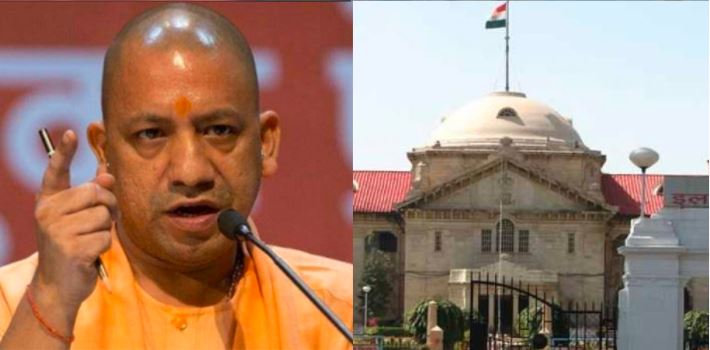Judicial overreach has been a problem in India for decades. In the lack of strong governments, the overzealous judiciary kept increasing its power and jurisdiction. However, since the Modi government came to power in 2014 with a full majority, it made attempt to curtail the unnecessary influence and exercise of power by the “Lords”. Now the practice has pilferage to the states, too, which are no longer taking the words of the judiciary as sanctum sanctorum. The same happened when UP CM Yogi Adityanath decided not to impose lockdown in five cities of the state – an order of the Allahabad High Court.
The decision of the Uttar Pradesh government to not impose lockdown in the cities despite the order from Allahabad High Court shows that the Yogi government is willing to challenge the orders from the “Lords” if they seem illogical. The Allahabad High Court had ordered a lockdown in five cities of the states and said that the pandemic had “virtually incapacitated our medical infrastructure…especially in cities like Prayagraj, Lucknow, Varanasi, Kanpur and Gorakhpur”.
The Yogi Adityanath government hired additional solicitor general Tushar Mehta to represent its case against the lockdown in Supreme Court and now the apex court has put a hold on the order by Allahabad High Court. The Uttar Pradesh government argued that the judicial order “may not be the right approach” and a “blanket lockdown imposed by the High Court in five cities would create immense administrative difficulties.” It also said that Allahabad High Court’s order infringed upon the state government’s domain.
“I share the concern of the court. Several steps have been taken,” said Solicitor General Tushar Mehta, representing the Yogi government.
A few months ago, in November last year, Vice-President Venkaiah Naidu made some inspiring remarks about the judiciary of the country and how the judicial process and the subsequent decisions by the judiciary had blurred the lines between different organs of the government. Naidu not only touched upon the firecrackers ban but also raised a pertinent point to the judiciary about the appointment of judges and how the executive was being entirely kept out of the loop.
“Curbing Diwali fireworks, denying the executive a role in the appointment of judges, and monitoring investigations are judicial pronouncements giving a “distinct impression of over-reach,” said Naidu, underlining that the legislature, executive, and the judiciary should respect “jurisdictional sanctity enshrined in the Constitution instead of arrogating (to) themselves a sense of supremacy”.
Even in the United States, where there is a strict separation of powers between the three arms of the state, the executive and the legislature play a vital role in the appointment of judges of the Supreme Court. Whereas in India, the legislature has no role in the appointment of judges while the executive has minimal say in the matter.
An attempt to introduce the role of legislature and executive in the process through the National Judicial Appointments Commission (NJAC) was struck down by the judiciary as void and thus the point raised by the Vice President becomes ever so important. Naidu talked about judicial reforms with terrific nuance and any independent judiciary should be willing to accommodate such constructive criticism in its stead. Thus, judicial reforms are the need of the hour and the Vice President’s statements only amplify the voices of those seeking such from the illustrious judiciary of the country.
The states like Uttar Pradesh have already started talking about the High Court meddling with their power, and if the “Lords” do not come to their sense very soon, other states might regularly challenge their orders, because, many times, these orders make no sense to the people with skin in the game.
